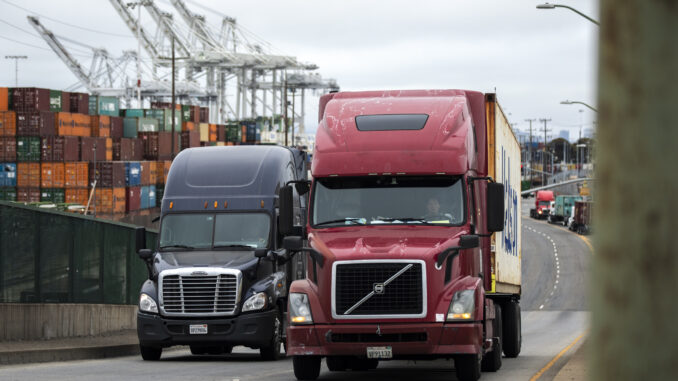
Some cautionary economic signals are gaining strength in California just a month after Gov. Gavin Newsom and state lawmakers adopted a record-breaking $308 billion budget.
The Golden State is more likely than not to collect less from personal income, sales and corporation taxes than the $210 billion assumed in the 2022-23 budget, according to a Monday report from the nonpartisan Legislative Analyst’s Office, which advises lawmakers on fiscal issues.
The report notes, however, that “significant uncertainty” remains, and the state could ultimately end up collecting anywhere from $25 billion less than anticipated to as much as $15 billion more — likely ending up about $5 billion below projections.
A recent report from the state Department of Finance offers a similarly mixed outlook: For the first time since the pandemic struck in early 2020, California’s tax revenues in June fell short of projections rather than exceeding them. Cash receipts came in about $2.4 billion less than expected, largely due to lower proceeds from the personal income tax.
- H.D. Palmer, a finance department spokesperson, told me Monday that although more data is needed to make “long-term extrapolations,” the June numbers suggest that Californians paying their taxes quarterly — who tend to make most of their money from capital gains and stock options — are seeing “a lot of clouds on the horizon” due to rising inflation and interest rates, persistent supply chain issues and global market instability caused by Russia’s war on Ukraine.
- Palmer said the two reports underscore “the importance of the actions that we’ve taken” to use California’s budget surplus “sensibly” by expanding reserves and paying down debt, rather than “embarking on a major expansion of state programs … that may very well not be sustainable.”
- He added: “It’s something to be mindful of as we consider this final month of the legislative session in terms of … any major potential new financial commitments. … Certainly the administration has one eye on this as we’re looking at the legislation that’s moving.”
Indeed, Newsom cited California’s progressive tax structure in announcing his opposition to Proposition 30, a November ballot measure that would raise taxes on residents earning more than $2 million to fund a variety of climate programs.
- Newsom: “California’s tax revenues are famously volatile, and this measure would make our state’s finances more unstable — all so that special interests can benefit.”
In other state economic news: The California State Teachers’ Retirement System, which provides pensions for hundreds of thousands of public school teachers, reported a 1.3% loss on investments for the fiscal year ending June 30 — its first annual loss since the Great Recession in 2009. The news came not long after its fellow pension fund, the California Public Employees’ Retirement System, posted a preliminary 6.1% loss on investments, also its first negative return since 2009.
- CalSTRS Chief Investment Officer Christopher Ailman: “As long-term investors, we think in terms of decades. One-year returns are akin to the pace of running a mile during a marathon. In a very challenging and unusual market environment where both equities and bonds were down double digits, our diversified portfolio mitigated losses.”
- California’s net liability for retiree health and dental benefits had reached $95.51 billion as of June 30, 2021, up from $95.19 billion the year before, according to a Monday report from State Controller Betty Yee. In a statement, Yee said the report gave her “cautious optimism” that California is on track to achieving full funding: The “minimal growth in year-to-year net liability is incredibly encouraging,” even as inflation “remains a global concern,” she said.
The coronavirus bottom line: As of Thursday, California had 9,922,718 confirmed cases (+0.5% from previous day) and 92,763deaths (+0.2% from previous day), according to state data now updated just twice a week on Tuesdays and Fridays. CalMatters is also tracking coronavirus hospitalizations by county.
California has administered 78,762,612 vaccine doses, and 71.7% of eligible Californians are fully vaccinated.



Be the first to comment